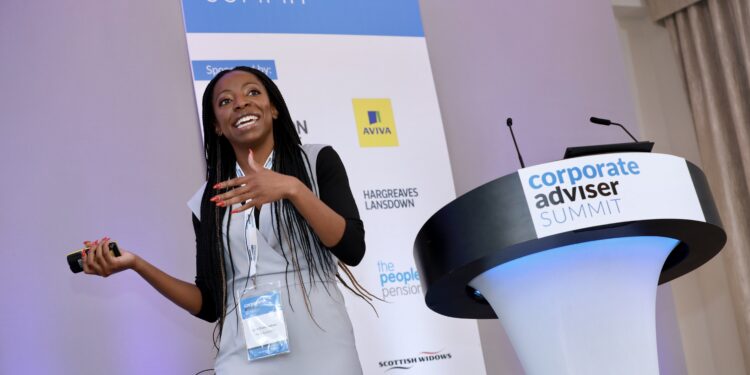Redefining diversity to include cognitive perspectives, individual identities, and representation is crucial for enhancing recruitment and committee effectiveness, fostering equitable decision-making, and addressing implicit biases, especially for underrepresented members.
That was the main point made by Uche Enemchukwu, CEO of Nelu Solutions, in her presentation on the pensions industry’s compliance with equality, diversity, and inclusion (ED&I) requirements and how failures impact members.
Enemchukwu emphasised the lack of diversity within the retirement industry, revealing that only 46 per cent of trustees are female, 38 per cent are aged 55 years or younger, and only 2 per cent represent racial or ethnic diversity.
She noted that defining diversity in terms of cognitive perspectives, individual identities, and representation may serve as the key to improving recruitment strategies and the effectiveness of board committees, ultimately contributing to positive outcomes for members.
Enemchukwu also pointed out that diverse perspectives foster more equitable decision-making, with culturally proficient boards and committees adept at addressing implicit biases. It’s crucial for members, especially those from underrepresented backgrounds, to find relatable role models within these groups, as unconscious attitudes or stereotypes can significantly impact our comprehension, actions, and choices.
To advance ED&I initiatives, Enemchukwu says it’s crucial to grasp the factors that could be stalling progress. This includes examining how recruitment is approached, identifying the specific demographic being addressed, pinpointing where they are located, and understanding the barriers hindering their access to opportunities.
She said: “When you grow up in a space and everyone is like you of course you don’t know people who are not like you. If you remained in your circles of course you can’t find the people that you’re looking for if you don’t know anyone like them. We have to define diversity first so that we can start to understand who we’re talking about and then where they’re located. If they’re not in your bubble, you’ve got to do something about it.
“The reason it matters for someone like me to be on the trustee board is because it impacts the way the board thinks. My background and daily experiences are very different so my views are different. I can catch you if you have a blindspot with something you weren’t trying to be ignorant about but didn’t know because it hasn’t been your life experience.”





